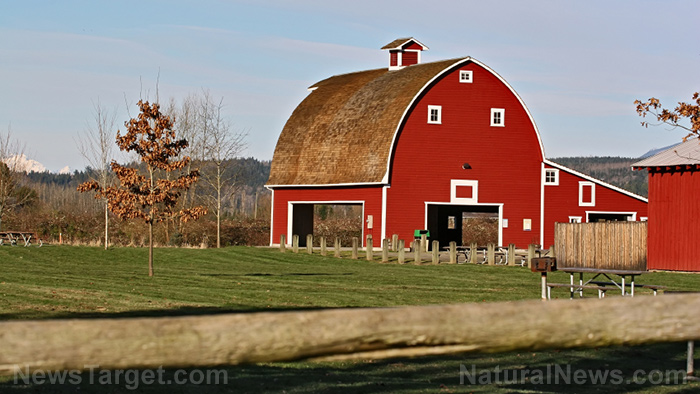Food prepping basics: 5 Easiest foods to can
06/05/2020 / By Darnel Fernandez

Whether you’re saving home-grown fruits and vegetables for a rainy day or you’re building up an emergency food stockpile in case of disasters, knowing how to can is an important skill to have for any homesteader and prepper. This form of food preservation can easily prevent spoilage and allow you to keep your food edible for long-term storage. While the process of canning seems quite overwhelming, certain foods are much easier to can than others – this makes them perfect for those who are just starting their journey as homesteaders or preppers. (h/t to HomesteadSurvivalSite.com)
Easy foods that can help you start canning
It takes a lot of time and effort to get into the groove of canning but the rewards are definitely worth it. In SHTF, throwing out fresh foods because you can’t eat them before they expire is a big waste of the back-breaking work you’ve done to acquire them. With the knowledge of canning, any leftovers can easily be saved for later. But before you get down to the nitty-gritty of canning, you need to know which foods will be accessible at your current skill level. (Related: The easiest foods to can.)
- Strawberry jam. Summertime is normally marked by a bountiful berry harvest. More often than not, the more common berries you’ll encounter will be strawberries. As the season goes on, you’ll find yourself using these strawberries in various dishes like smoothies and fruit salads. However, one of the most useful ways to preserve your berry harvest is by turning them into a jam. There are plenty of strawberry jam recipes out there that are both simple and delicious, so choose whichever you like before pouring the mixture into a sterile canning jar. But, always take note to leave some room at the top of the jar for sealing.
- Pickles. Pickles are a classic when it comes to food preservation. By simply planting a few cucumber seeds, you might find yourself with way too many cucumbers for you to use. Pickling and canning them can be a great way to keep the extras edible for the future. All you need to do is cut up the cucumbers into spears or slices before placing them into a sterile canning jar.
- Tomatoes. Freshly picked tomatoes right off the vine can be kept tasty and edible using either a pressure canner or water bath canner so as long as you add enough acidity to the jars. To can them, blanch the tomatoes to remove the skin then cut them up according to whichever recipe you prefer. Afterward, place the tomatoes in a sterile jar before boiling the container in a water bath system for about 45 minutes. You can even add your own seasonings or spices depending on what you want to do with your tomatoes.
- Green beans. If you’ve only just joined in on homesteading, growing and canning your own green beans can be an easy way to stock up on fresh vegetables for the winter. Because of green beans’ low acidity, you’ll need a pressure canner to preserve them. First, you cut off the ends of the beans before snapping them into bite-sized pieces. After that, tightly pack the beans into a clean sanitized jar before adding water. Add salt to taste then process the beans by placing at least 2-quart jars into a pressure canner that’s been set at ten pounds of pressure for 25 minutes.
- Corn. As the summer season comes to a close, you might see corn plants starting to become heavy with ripe ears. Canning your corn can keep the fresh taste of corn off the cob ready all year round. As with green beans, you’ll need a pressure canner because of its low acidity. If you want to can raw corn, all you need to do is cut off the corn from the cob before placing it directly into a canning jar. However, if you want to can blanched corn, you should dip the ears into boiling water for two minutes. Just remember to let the corn cool down in an ice bath before canning.
Keep polishing your canning skills so you can preserve more food. Visit Homesteading.news to learn more.
Sources include:
Tagged Under: canned food, emergency food, food canning, food prepping, Food Preservation, food supply, green living, home canning, homesteading, preparedness, prepper, prepping, self sufficiency, self-reliance, survival, survival food, sustainable living
Get independent news alerts on natural cures, food lab tests, cannabis medicine, science, robotics, drones, privacy and more from NewsTarget.com
Get independent news alerts on natural cures, food lab tests, cannabis medicine, science, robotics, drones, privacy and more from NewsTarget.com
RECENT NEWS & ARTICLES
SHTF.News is a fact-based public education website published by SHTF News Features, LLC.
All content copyright © 2018 by SHTF News Features, LLC.
Contact Us with Tips or Corrections
All trademarks, registered trademarks and servicemarks mentioned on this site are the property of their respective owners.




















